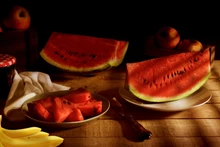
Plastic, a marvel of modern invention, has undoubtedly transformed our lives, making everything from packaging to medical devices more accessible and convenient.
However, its overuse and improper disposal have led to an escalating environmental crisis that cannot be ignored. The quest to rid our world of plastic is not just an environmental concern but also a matter of public health and lifestyle.
As we navigate this complex issue, it's important to examine the multifaceted impacts on our well-being and the adjustments required in our daily lives.
Plastic Pollution and Health Implications
Plastic pollution presents an alarming threat to our ecosystems, but its impact on human health is often underestimated. Plastic waste breaks down into smaller particles known as microplastics, which have infiltrated our water sources, food chain, and even the air we breathe. These tiny particles can harbour toxic chemicals and additives used in plastic manufacturing. When ingested, these chemicals may disrupt our endocrine system and pose potential risks to various health aspects, including hormonal balance and reproductive health.
Furthermore, microplastics can absorb pollutants from the environment, such as heavy metals and persistent organic pollutants. These pollutants can accumulate in the bodies of organisms that consume microplastics, potentially leading to long-term health consequences for humans higher up the food chain. Research is ongoing to fully understand the extent of these risks, but the evidence highlights the urgent need to reduce plastic pollution for the sake of both our environment and well-being.
Lifestyle Choices for a Plastic-Free Future
Transitioning away from our plastic-dependent lifestyle might seem challenging, but it's essential for a sustainable future. Embracing a plastic-free lifestyle requires a conscious shift in our choices, from the products we purchase to the way we manage waste.
-
Reusable Alternatives- One of the most effective ways to reduce plastic consumption is by opting for reusable alternatives. Stainless steel water bottles, cloth grocery bags, and glass food containers can replace their single-use plastic counterparts. These changes not only reduce plastic waste but also minimize our exposure to potential health hazards associated with plastic usage.
-
Minimalist Approach- Adopting a minimalist approach to consumerism can significantly contribute to plastic reduction. Many products come heavily packaged in plastic, contributing to unnecessary waste. By choosing products with minimal packaging or buying in bulk, we can send a message to manufacturers and reduce our plastic footprint.
-
Personal Care and Hygiene- The personal care and hygiene industry is notorious for single-use plastic items. However, there is a growing market for plastic-free alternatives, such as bamboo toothbrushes, shampoo bars, and refillable containers for soaps and lotions. These changes not only benefit the environment but also promote healthier choices for our bodies.
-
Food Choices- Our dietary habits can also play a role in plastic reduction. Pre-packaged and processed foods often come wrapped in layers of plastic. Opting for fresh, local produce and preparing meals at home can significantly cut down on plastic packaging while promoting a healthier diet.
-
Waste Management- Proper waste management is crucial for curbing plastic pollution. Recycling and composting should be a priority, but reducing overall waste is even more effective. Educating ourselves about proper waste disposal practices ensures that less plastic ends up in landfills and natural ecosystems.
Balancing Convenience and Sustainability
While the shift towards a plastic-free lifestyle requires effort and commitment, it's important to acknowledge the challenges that arise from the convenience-oriented world we live in. Plastic has undeniably revolutionized many aspects of our lives, from food preservation to medical advancements. Striking a balance between convenience and sustainability is a complex task that necessitates innovation, research, and a collective willingness to change.
-
Innovation in Packaging- The industry has a pivotal role to play in driving change. Research into biodegradable and compostable alternatives to conventional plastic packaging is crucial. These innovations can maintain the convenience consumers expect while drastically reducing the environmental and health impacts associated with plastic.
-
Government and Corporate Responsibility- Governments and corporations wield significant influence in shaping consumer behaviours. Legislation and regulations can encourage the use of sustainable materials, while businesses can take the lead in reducing plastic packaging and adopting eco-friendly practices.
-
Consumer Awareness- Raising awareness about the health and environmental consequences of plastic consumption is paramount. Educated consumers can make informed choices that not only benefit their own well-being but also contribute to a cleaner planet.
The journey towards eradicating plastic from our lives is a complex but necessary one. As we strive for a healthier and more sustainable future, we must recognize the intrinsic link between plastic pollution, human health, and lifestyle choices.
By embracing reusable alternatives, advocating for innovative solutions, and encouraging responsible production and consumption, we can collectively pave the way for a world with less plastic, reduced environmental harm, and improved overall well-being.











